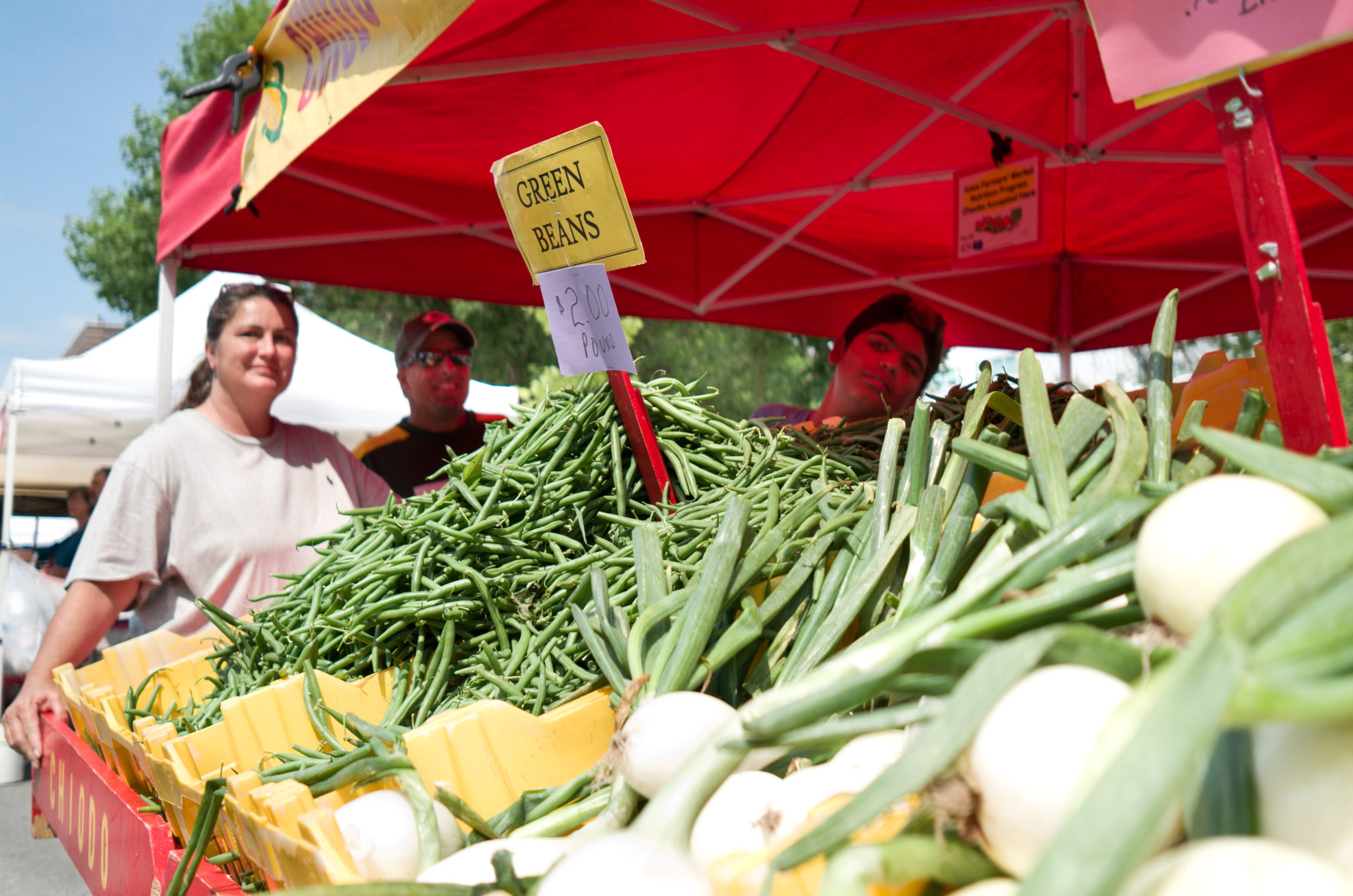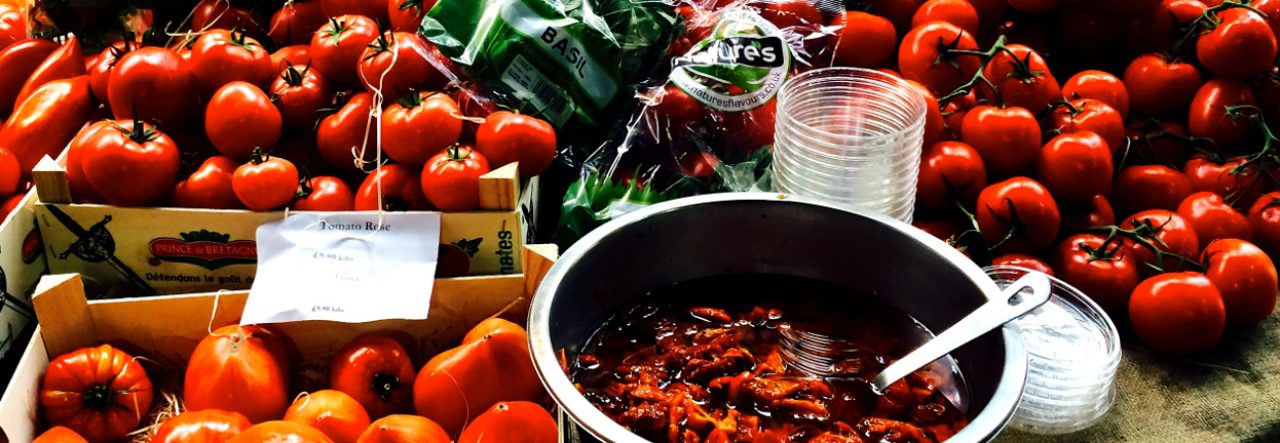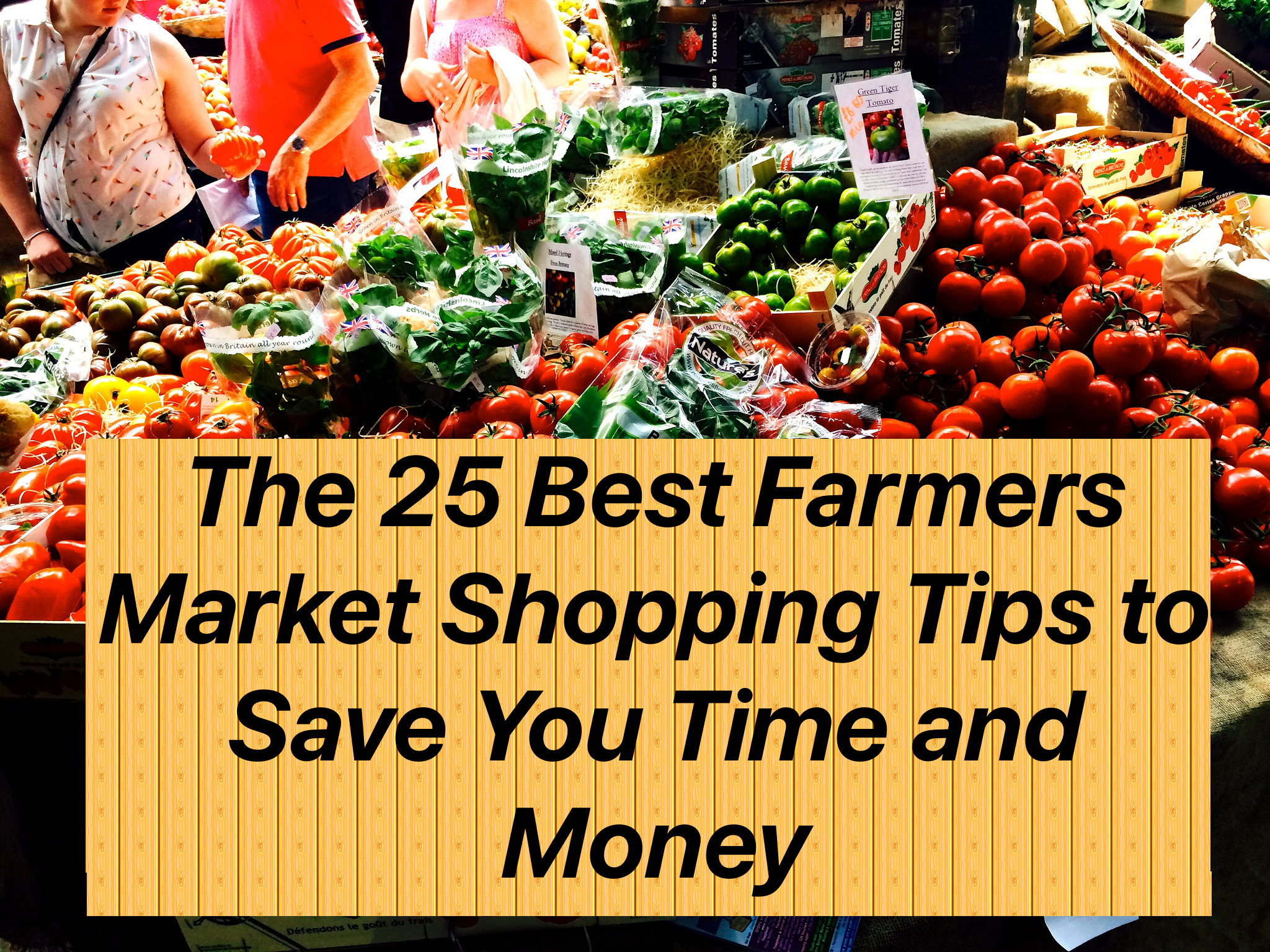The Complete List of Farmers Market Shopping Tips
Most of my friends and family have never visited their local markets because (insert excuse here). Once you start going you will be part of the healthier peoples’ club when you by your weekly salad and smoothie ingredients.
Here are some other reasons to take the leap and go:
- Buy fresher foods – You can be a farm to table chef!
- Support your local farmers and community.
- Find organic foods.
- Cheaper than grocery store prices.
Read this Complete List of Farmer’s Market Shopping Tips collected from many farmer’s markets so you’ll know what to expect.
Find your closest farmers market – Using this Google Search
For more food information be sure to check out our main page: Food Market Waldwick

Before you go:
- What to buy? – Know what’s in-season. Visit this link: Seasonal Produce Guide
- Bring small bills – Everything is cheap! Some places take credit cards – but don’t count on it – and vendors prefer cash. Tip: Most larger markets not only accept EBT / SNAP but may have a “Bonus Bucks” type program so check with the information desk at the market.
- Bring a cart/ reusable bags – Carts will save your back / prevent multiple trips back to your car. Bring a cooler (collapsible with ice packs) to keep your perishable purchases cool. Bring a portable folding cart and save your back. Here are some of the best bags, totes, and carts available: The 5 Best Bags, Totes and Carts:
- Check the weather – Bring sunscreen, an umbrella, and bug spray if required.
- Schedule your visit – Generally, Farmers markets are typically only four hours, one day a week. Plan to arrive early for the pick of the litter or arrive late for last-minute markdowns.
- Do some research – Visit the Market’s website ahead of time.
- Do you have any pets? – Find out if your market allows pets before you pack up Fido. Most farmers markets either do not allow pets or have rules for people who bring pets. If you are unsure, leave Fido at home.
- Bring your smartphone – for recipe ideas based on what you are seeing at the market.
- Bring toothpicks – so you can create a couple of fruity vegetable friends and find the shape of items that work for you. Sometimes if you need an odd shaped food, they will give it to you for free. See Pinterest: Link or Joost Elffers’ book: Play With Your Food
- Plan to go directly home afterward – because your purchases do not want to sit in your car.
At the Market:
- First Visit the Market’s info booth – sometimes there are maps, specials or coupons listed.
- Buy things that won’t spoil first, then walk the market and get the milk, eggs, meats, flowers, and seafood. Sometimes you can request the vendor mark and hold your purchases if you pay first.
- Bargaining “typically” doesn’t happen, so first, walk the entire market and take notes on prices and quality before you buy. (Exceptions – buying in bulk, over-ripe or late-in-the-day purchases)
- Don’t squeeze the produce – if you’re not sure how ripe something is – ask the booth attendant. Ask how long it will be good for and how to store it for your dinner later in the week / next weekend.
- Ask about organic certifications if that’s your thing.
- Buy extra for your friends, family, and neighbors. (or give them a little produce mascot that you produced!)
- Inspect closely for bugs – You do now want any extra passengers on your ride home.
- Talk with farmers – to uncover any unadvertised deals – bulk items or what’s their next big crop hitting the stands. Find out what other local farmers markets that they frequent. You might find the same items for less and find new farms and vendors. But be mindful of other people who need to ask the vendor questions or complete purchases.
- Buy something new – Quail eggs anyone? They look like min dinosaur eggs!
- Think ahead – meal plan your week and don’t over-buy. If you do, you’re only helping your compost pile.
- Properly store your purchases – Some ripe and over-ripe fruits and vegetables give off ethylene gas which will cause food to ripen faster. Remember the old apple in a bag with the avocados trick. Do not mix certain foods – keep green leafy items separate – see next section for more information.
When you get home:
- Store your produce – Not all items like to be stored in a refrigerator. Store these outside of the refrigerator: apples, avocados, unripe bananas, nectarines and peaches, pears, plums, and tomatoes.
- Use your crisper drawers and remember: “wilt-high rot-low.”

Wilt High Rot Low - High humidity storage (Crisper): (typically ethylene sensitive) Things that wilt – basil (fresh herbs), lettuce, kale, unripe bananas (unripe), endive, broccoli, brussels sprouts, cabbage, carrots, cauliflower, cucumbers, eggplant, green beans, leafy greens, spinach, peppers, strawberries, summer squash, watermelon (Remember- Wilt-High – place foods that wilt in humidity)
- Low humidity storage:(typically ethylene producers) things that rot: apples, avocados, apricots, cantaloupe, figs, berries and honeydew melons, kiwis, mangoes, papayas, pears, plantains, stone fruits. (Remember Rot-Low place foods that rot in low humidity)
- More information about Ethylene gas – Ripe/overripe foods will generate more ethylene gas, with will cause the other foods to ripen faster. Check the food daily and remove the gassy offenders. “One bad apple spoils the bunch”. But a bunch of ripe bananas in a paper bag filled with green tomatoes – will produce red tomatoes in 3 days. And be flexible with your dinner menus because your food will tell you when it’s time to eat it. Here is a complete table: Fruits & Vegetables Producing Ethylene Or Sensitive To Ethylene
- Check Your Food Daily – Check on the ripeness of your produce daily and eat the food when it’s ripe or almost ripe. And toss out those ethylene producing rotting fruit before it or the “one bad apple spoils the bunch!”
Happy Shopping! Start to use your new knowledge and eat healthy, farm-fresh food while supporting your community!
Visit FoodMarketWaldwick.com for more information.



I like the tip that you gave to plan ahead on what you will buy before you go to the market. My wife and I have made a goal to buy our food locally, and we want to make sure that we do everything right. I will be sure plan the trip with my wife, so we do not overspend.